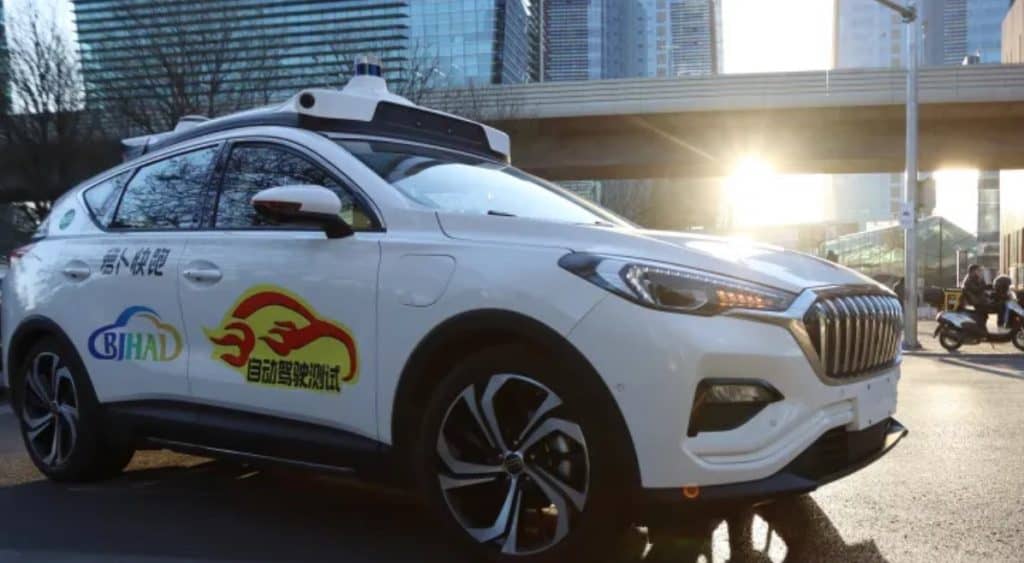
BEIJING — In less than two years, Chinese tech giant Baidu’s robotaxis have grabbed about 10% of the ride-hailing market in a suburb of Beijing city, the company said during an earnings call Tuesday.
Baidu’s U.S.-traded shares fell 6.5% overnight to $137.69 each. Shares are down by more than 7% for the year so far.
The Chinese company said it has more than 100 robotaxis operating in the suburb, with each vehicle running more than 20 trips a day on average. Local rules require human staff to sit in the vehicle with passengers.
In Beijing, Baidu cannot yet operate its robotaxi business on public roads in the central part of the city. According to information from the company, the only part of Beijing where Baidu can charge fares for rides on public roads is in a suburb called Yizhuang.
The region is roughly a 30-minute drive south from the center of China’s capital city. The area is home to many corporations including e-commerce giant JD.com’s headquarters.
Baidu began offering free robotaxi rides in Yizhuang in October 2020, and received approval to collect fares in November 2021.
However, CNBC checks of the Baidu robotaxi app have showed rides remain heavily subsidized, even as of Wednesday.
A half-hour trip from JD.com’s headquarters to a residential area within Yizhuang displayed a fare of 5.36 yuan (79 cents) — and a 48.24 yuan discount.
A check of start-up Pony.ai’s robotaxi app showed the fare for the same route was completely subsidized. Pony.ai received approval to charge fares for its robotaxis in Yizhuang around the same time that Baidu did.
Baidu’s robotaxi business, branded Apollo Go, operates in more than ten cities in China. Apollo Go can charge fares in seven of those cities, the company said.
In Tuesday’s earnings release, Baidu said it ran 287,000 public robotaxi rides in the second quarter, up 46% from the first quarter.
Of that second quarter total, robotaxi rides in Yizhuang accounted for more than 60%, according to CNBC’s calculations.